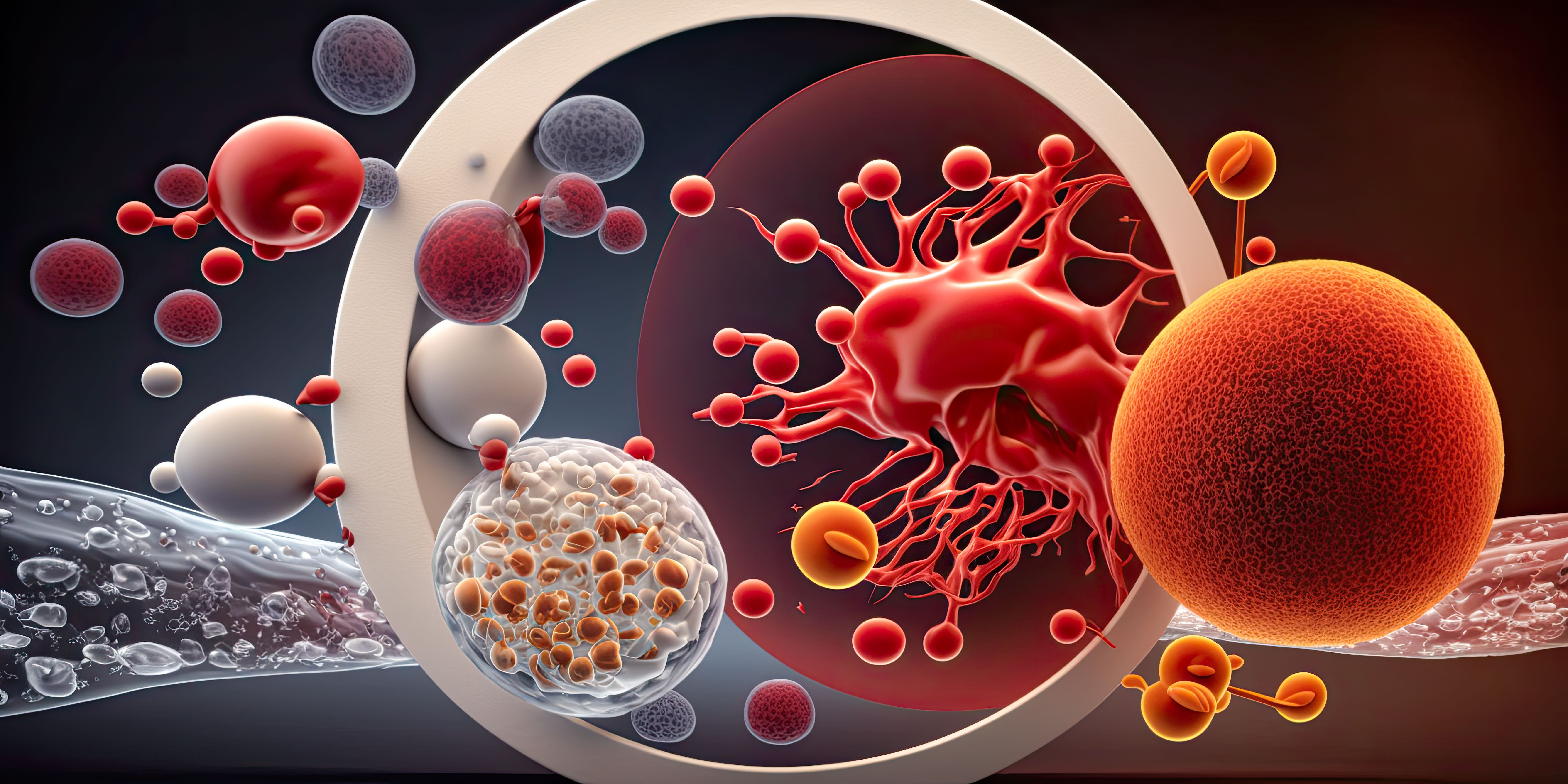AFM13/NK Cell Combination Shows Encouraging Responses in R/R Lymphoma
AFM13-NK combo shows high response rates in relapsed/refractory lymphoma trial, per survival data reported at 20 months.
Lymphology hematopoietic system, medical illustration - Generative AI: © jovannig - stock.adobe.com

Results of a phase 1 trial (NCT04074746) evaluating the combination of the bispecific antibody AFM13 and expanded natural killer (NK) cells precomplexed with AFM13 (AFM13-NK) in 42 patients with relapsed refractory lymphoma demonstrated an overall response rate (ORR) of 92.9% and a complete response (CR) rate of 66.7%. At a median follow-up of 20 months, investigators reported 2-year event-free survival (EFS) and overall survival (OS) rates of 26.2% and 76.2%, respectively, according to findings published in Nature Medicine.1
“We observed rapid and strong responses to this novel approach of treating patients with AFM13-NK, and we continue to evaluate the efficacy of this therapy for these hard-to-treat malignancies,” principal investigator Yago Nieto, MD, PhD, professor of stem cell transplantation & cellular therapy, The University of Texas MD Anderson Cancer Center, Houston, said in a release. “These data lend to this approach being considered as a possible curative treatment for some patients and a bridge to a stem cell transplant for others.”
Although targeted therapies and immunotherapies have demonstrated benefit in patients with CD30-positive lymphomas, there is a need for new therapies in patients who develop resistance to these agents.
In the trial, 27 patients with Hodgkin lymphoma and 5 patients with T-cell lymphoma received 2 to 4 cycles of lymphodepletion followed by an AFM13/NK cell infusion at 3 dose levels (1 × 106, 1 × 107 and 1 × 108 kg−1) and 3 weekly AFM13 infusions. Patients were heavily pretreated and were refractory to brentuximab vedotin (Adcetris) and anti-PD1 immune checkpoint inhibitors. Patients were a median age of 43 years old and had received a median of 7 lines of prior therapy.
Among patients with Hodgkin lymphoma, the ORR and CR rates were 97.3% and 73%, respectively. The median EFS was 8.8 months, and median OS had not yet been reached at data the cut-off of December 31, 2023. Eleven patients (6 with and 5 without consolidation) remained in CR at 14 to 40 months.
The primary end points were safety and determination of the recommended phase 2 dose of AFM13-NK followed by intravenous AFM13 infusions. Secondary end points included ORR, CR, EFS, OS, and persistence of infused AFM13-NK cells.
AFM13 activates NK cells to kill CD30+ cells. The NK cells are first activated with cytokines, expanded in the presence of artificial antigen-presenting cells and complexed with AFM13 before being infused into a patient. Precomplexed AFM13-NK cells are more readily able to find and eliminate CD30-positive lymphoma cells. The technique was explored in “Emerging Frontiers in Immunotherapy: The Promise of NK-Cell Therapies.”2,3
The AFM13-NK cell treatment was well tolerated, with no identified cases of cytokine release syndrome, immune cell associated neurotoxicity syndrome or graft-versus-host disease. There was 1 case of grade 2 infusion-related reaction. Further, no dose-limiting toxicities were reported and the recommended phase 2 dose of NK cells was determined to be 1 × 108 kg−1.
The authors concluded that the combination “holds promise for the treatment of Hodgkin lymphoma but also supports future research into the application of NK cells with bispecific engagers.”










